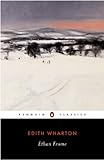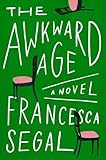At the turn of the 20th century, novelist Edith Wharton built The Mount, in Lenox, Massachusetts; a vast, Italianate villa of more than 16,000 square feet, finished according to Wharton’s own characteristically rigorous theories of architectural and garden design. New Yorkers of the Golden Age would drift languidly to the Berkshires in summer, to escape the sweltering Manhattan heat. They came for just such grand estates of manicured lawns and formal gardens; for the clear air and breezes; they came for the lakes, and the woodland; for the tennis courts, and courting rituals.
I, by contrast, came to the Berkshires in January. The snow lay thick and undisturbed, muting the landscape like dustsheets in a home shut up for winter. Beneath it everything was democratised, disguised, submerged and snow-softened into soft indistinguishable hummocks. Among empty summer homes, the houses of hardy, year-round residents were easily identifiable—many locals take the quite sensible precaution of shrink-wrapping their clapboard houses in plastic sheeting, to insulate against the bitterly cold wind. On the day I drove into Lenox, the local radio announcer seemed exercised. It’s below zero out there, today, folks, he warned a few times, in between Bon Jovi and Red Hot Chili Peppers. Pfff, I said to myself, it’s always below zero in London. I was feeling jolly, testing the limits of the four-wheel drive, skidding merrily around treacherous corners overhung with snow-thickened elm and oak. Then I realized he meant that it was below zero Fahrenheit. I slowed the car out of respect. This was a cold too cold for my mild English comprehension. For three hours I had been snug in my rented Ford Explorer, a steaming New York coffee and a bag of donut Munchkins beside me. How was I to know it was polar, out there?

 I was coming to Lenox on a Wharton pilgrimage. The previous summer I had given a talk at the Mount, now restored and preserved as a museum and cultural center. My first novel, The Innocents, is a contemporary recasting of Wharton’s Pulitzer Prize-winning The Age of Innocence, set in Jewish North-West London. I had come from Boston just for the afternoon to find French windows thrown open onto a glorious wide terrace, overlooking a formal, Italian-style garden, connected to the French garden by an avenue of pleached lindens. Sun-stunned drunken bees lurched and buzzed languidly, and Susan Wissler, the Mount’s director invited me to look out across this paradise and to imagine it in winter. Frigid January was their quietest month, but for staff the house was heated, and open. The off-season had its own charms. Susan wondered, would I like to come and write there? I would, I told her, without pausing for breath, and here I was. In my suitcase was a large tin of Marks and Spencer’s shortbread, to serve as a bribe, just in case she had forgotten her promise.
I was coming to Lenox on a Wharton pilgrimage. The previous summer I had given a talk at the Mount, now restored and preserved as a museum and cultural center. My first novel, The Innocents, is a contemporary recasting of Wharton’s Pulitzer Prize-winning The Age of Innocence, set in Jewish North-West London. I had come from Boston just for the afternoon to find French windows thrown open onto a glorious wide terrace, overlooking a formal, Italian-style garden, connected to the French garden by an avenue of pleached lindens. Sun-stunned drunken bees lurched and buzzed languidly, and Susan Wissler, the Mount’s director invited me to look out across this paradise and to imagine it in winter. Frigid January was their quietest month, but for staff the house was heated, and open. The off-season had its own charms. Susan wondered, would I like to come and write there? I would, I told her, without pausing for breath, and here I was. In my suitcase was a large tin of Marks and Spencer’s shortbread, to serve as a bribe, just in case she had forgotten her promise.
I made a home in Edith’s sewing room where the silence was broken only by the hiss and steam of radiators. The window looked out upon the terrace and the formal garden of topiaried box that had won my heart. For the most part, I was entirely alone. Almost certainly more alone than Edith had ever been there; I did not have an army of silent maids and butlers busily lubricating the household wheels. Instead, I had Boots.
Occasionally I would hear claws skittering on parquet and Boots would appear, the resident Alsatian on benign patrol, checking on my morning’s progress. It felt right to have a dog beside me as I worked though Edith herself would have preferred it to be a rinky-dink Chihuahua or a Papillion, small enough to balance on a tasselled silk cushion, on a lap. A postcard I particularly cherish shows her with a tiny dog erect on each shoulder, like a pair of parrots. These were Wharton’s beloved Chihuahuas Mimi and Miza (now buried out there beneath the snow, in Wharton’s well-populated pet cemetery). Her leg of mutton sleeves are substantially larger than each dog. Close together, all three faces fit beneath Wharton’s feathered hat, and while the canines gaze aristocratically off stage right, Edith meets the eye of the camera, humourless, demanding and commanding absolute respect.

 Often I took a break from work and drifted through the empty museum that now fills her many rooms, if one can be said to drift in tire-soled North Face snow boots. Day after day I became more enraptured with the house. Ethan Frome was written here. The House of Mirth, Wharton’s greatest success, was written in this house, upstairs, in bed (with dog du jour). As she finished pages she would drop them on the floor, for a scurrying secretary to retrieve and transcribe.
Often I took a break from work and drifted through the empty museum that now fills her many rooms, if one can be said to drift in tire-soled North Face snow boots. Day after day I became more enraptured with the house. Ethan Frome was written here. The House of Mirth, Wharton’s greatest success, was written in this house, upstairs, in bed (with dog du jour). As she finished pages she would drop them on the floor, for a scurrying secretary to retrieve and transcribe.
 And it was here, thanks to Susan, that I now began to write The Awkward Age , my own second novel, its title borrowed shamelessly from Wharton’s friend and frequent guest at The Mount, Henry James, who wrote rapturously of the house, ‘I am very happy here, surrounded by every loveliness of nature & every luxury of art & treated with a benevolence that brings tears to my eyes.”
And it was here, thanks to Susan, that I now began to write The Awkward Age , my own second novel, its title borrowed shamelessly from Wharton’s friend and frequent guest at The Mount, Henry James, who wrote rapturously of the house, ‘I am very happy here, surrounded by every loveliness of nature & every luxury of art & treated with a benevolence that brings tears to my eyes.”
As I worked, I wondering at Wharton’s seeming fluidity, and ease. I longed for the house to yield up her essence: her elegance, her determination, her focus. In a sense it did. If I caught myself on Twitter, I would cringe at the thought of Edith’s scorn, shut my laptop with a guilty slam and return for a moment to her window, to remind myself what it was that she had here achieved. I did more work under Edith’s influence than I had done in the six months preceding it. I admit it—I was slightly scared of her.

In the evenings I would scoop fresh snow into a highball tumbler to make cocktails. Whiskey and birch syrup; or bourbon, bitters and maple, a series of grown up New England Slurpees. I had received another, less grown up New England tip: boiling maple syrup poured on firm-packed snow turns to glorious taffy. I don’t think ever Edith did this, I thought, with rebellious delight, crouching in pale moonlight in pyjamas and boots and a fur trapper hat, extending a spitting saucepan to watch the steam rise as I poured with hands made clumsy with the cold. I retreated inside and silenced my chattering teeth by gumming them together with taffy, by the fire.
The Mount’s trustees liked a living author making use of the house for its proper purpose: fiction. Since that magical winter, thanks to the generosity of an anonymous donor, The Mount has created a formalized program of Writer-in-Residence, available every February and March to “writers and scholars of demonstrated accomplishment” who “are invited to create, advance, or complete works-in-progress.” I am wild with envy, jealous of all of those lucky so-and-sos with the experience ahead of them. I envy them the winter-hushed Narnian estate, the borrowed but intoxicating sense of luxury and privilege; the stark beauty, the solitude, but most of all, the union and intimacy with one of America’s great novelists. I was there first, I huffed to myself, upon learning of the new program, but even then I knew it wasn’t at all true. Edith Wharton was there before all of us; disdainful, imperious, brilliant foremother.
Photos courtesy of the author.
The post My Winter with Edith Wharton appeared first on The Millions.
from The Millions https://ift.tt/2ImRGbZ
Comments
Post a Comment